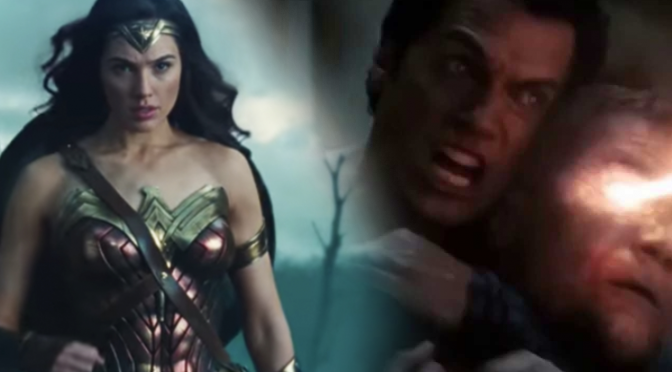Once upon a time, being dominant in a specific form of media was generally enough for anyone. If you were a novelist, you’d probably only be a novelist aside from a few passion projects you had on the side. If you were a screenwriter, you’d be known as a screenwriter first and any other projects you worked on would be exceptions rather than the rule. And if you did comic books, it tended to be a long shot for you to get big somewhere else. But today it’s much more likely that anyone who becomes a success will do so across multiple platforms.
Cross platform properties have become so common today that most successful works have their movie rights sold almost as fast as their book rights. Sure, some works are going to remain on a single format, but those are becoming increasingly rare in the most popular genres. Part of this is because cross promotion tends to help all parties involved. Selling the movie rights to a book is generally going to help sell more books as people become curious about the IP and having a book out to go with the movie tends to help with stirring interest in seeing the story fleshed out in full. And, while many would say it’s a sign of both industries being “out of ideas”, it’s really just about having audiences primed to spend money on something they may not have spent money on before.
But what exactly makes a good adaptation and why is it, despite all efforts, that some adaptations turn out terribly?
The Spirit Of The Work
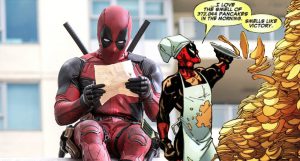
Recently one of the bigger names in comic books, Mark Millar, made a statement on a theory he had about why DC movies do worse than Marvel movies. Millar himself does know something about adaptations since his works have been adapted repeatedly over the years. According to him, the problem was that the DC characters just can’t be adapted properly for two primary reasons. The first reason is that DC characters were less relatable because their powers tend to be of greater focus than their characters. The second reason he cited was that they were simply from another era – as most DC characters predate most Marvel characters by several decades. However, it was easy to point out that audiences really liked Wonder Woman and that there have been successful DC movies in the past. So while his theory seemed to be close to something, it still felt wrong to a lot of people.
And there was reason for why it felt close to something – he wasn’t entirely wrong. For a very long time it’s been known that there was this philosophical divide between the two brands. Marvel’s characters became most prominent during the “Silver Age” where comic books were starting to take the forms they would in the modern era. This period was marked by a tendency to make their characters more relatable by narrowing the focus and updating certain elements to meet modern sensibilities. The result of this narrowing of focus and updated elements was that, while Golden Age heroes were borderline perfect, Silver Age heroes tended to be portrayed as normal people who fell into their role. And, while both Marvel and DC have characters who were either created or redeveloped in the Silver Age, there are a lot more Golden Age holdovers in the DC line – particularly their most important characters.
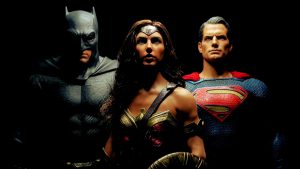
But the problem with Millar’s assessment is that he misses the more glaringly obvious reason why DC’s characters (outside of Wonder Woman) haven’t adapted well to the screen: the characters on screen are generally not the characters in the books. Generally, the movies that succeed are the ones that have captured the reason why the original material worked in the first place. If your IP is centered on a character, you better get that character right. If it’s centered on a premise, you better hit that premise. But to date, only one movie in the “DCEU” has really accomplished this. Wonder Woman, even in the quiet moments, embodied the spirit of the original comics.
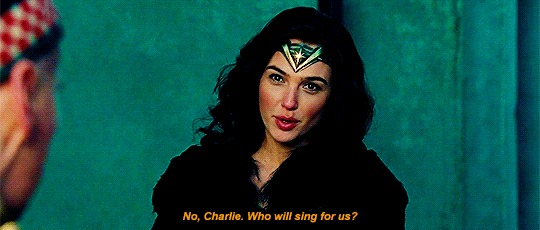
But while Wonder Woman is the outlier at the moment, Superman has had good movies in the past that also bring Millar’s analysis into question. If you were to look at Superman as just a collection of powers, as Millar described him, it would be very difficult to relate to him. Superman as a figure is literally the perfect man with powers that make him a god among men. But generally that’s not the part that puts people off – we expect him to fly, lift heavy objects, and shoot heat rays out of his eyes because it’s part of why we’re there. No, the part that tends to fail in recent Superman movies is the other half of the equation, the one that Millar implied didn’t exist. Superman movies tend to live or die on their representation of Clark Kent.
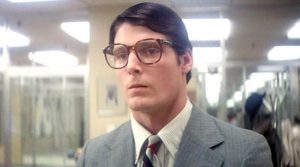
And when I say Clark, I don’t mean when he puts on the glasses, I mean the personality beyond his powers. Superman as a collection of powers is a god – but Clark, the man behind those powers, is still full of imperfections that you could find in all of us. People often argue the character is boring because he’s too perfect, but fail to recognize the imperfections in him. It’s true that Superman can do almost anything, but Clark is incapable of doing everything – and it’s inevitable he’s going to wish he could. And when you look at the adaptations of that character that have succeeded and failed, the strength of the depiction of Clark is generally where it happens.
In the Christopher Reeve movies, at least the first two, you could always see the gears that are Clark Kent turning behind the disguise – whether it be the glasses or the costume. This was a man who wanted Lois’ approval, and was tempted at times to reveal who he was in order to get it, but didn’t want her to love the powers over himself. He was, while capable of almost anything, almost incapable of getting her to see him for him. But when you look at more recent adaptations, starting with Superman Returns and moving on through to the DCEU movies, Clark is treated either wholly as a disguise (as in Man of Steel) or barely a factor (as in Superman Returns). Both of these adaptations were visually spectacular for their times and certainly had more thrilling set pieces involved, but the time between those epic moments didn’t really have much of a heart to them. For all their spectacle, they forgot the dude in the spectacles.
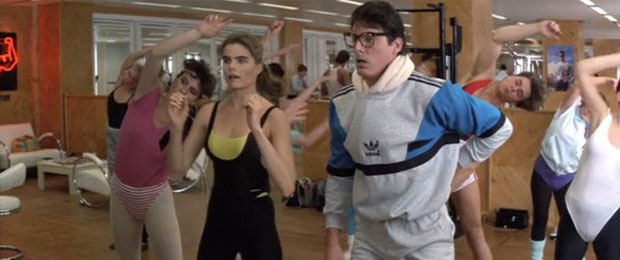
And this is a common error in adaptations. Adapting a work is a tricky prospect because different formats have different constraints and requirements. Though some observers will suggest that adaptations should just adapt a work straight and not make any changes, this is actually impossible. There have been efforts in novels, comics, and TV to create a property which was pre-built to be adapted successfully to the big screen and almost all of them have failed. To make a property work in its current form you have to write it for that current form, and if you instead write it as a way of being friendly to the next form you’ll almost certainly fail. And in the other direction it’s just as big of a problem because when people have tried to cram in every detail of a given work they’ve become what audiences and critics alike will generally describe as “overblown”.
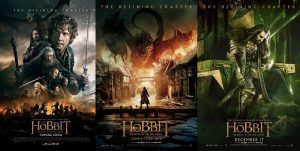
Instead, to create a proper adaptation you need to be willing to decipher why the original worked in the first place. You have to find the essence of what it was about and then you have to distill that use it as your starting point. You can’t write a good Harry Potter movie that doesn’t understand the relationship of Harry, Hermione, and Ron. You can’t do a good Tolkien film without capturing the feeling of an epic adventure through a fantastic land. You can’t adapt Captain America without understanding that he’s more about the ideal than he is about the country. And you can’t adapt Ghost in the Shell without understanding the core of the Major’s character (which that movie failed to do completely).
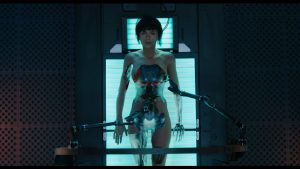
And this has been a major problem for film adaptations for a very long time. Any adaptation you can find that happened to fail generally made the mistake of misidentifying the reason why the original worked. Either they focused only on the superficial aspects, picked an aspect they felt was more friendly to a mainstream audience, or straight up replaced the essence of the property in a belief they can somehow make it “better”. This is particularly true in the adaptations of properties like video games where the filmmakers believe the original just won’t translate correctly to the screen and try to reinvent the wheel. This leads to things like the Street Fighter movie being focused on Guile (rather than Ryu and Ken, who were the stars of the series), the Mortal Kombat movies being surprisingly lacking in violence, and the Mario Bros…
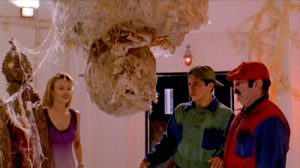
And this isn’t to say that the best adaptations are the ones that are laser focused on recreating the original material, rather, there needs to be an attempt to recreate the spirit of the material. Few, if any, of the Marvel movies in particular actually reflect stories as they appeared in the comics faithfully. Generally they take elements of many stories and use those elements to create a new version that works for the media they’re working with. And this is true of some great adaptations of books as well. The WIzard of Oz, a classic adaptation, is wildly different from the original books. The Wicked Witch wasn’t green, the shoes weren’t red, and Glinda was from the South and didn’t show up until much later in the book. You could argue these are all fairly minor details, and you would be right, but the part they did stay true to was the whimsy at the core. Which matters most, that the Cowardly Lion eventually finds his courage or that, to solve his problem, the Wizard gave him “liquid courage”?
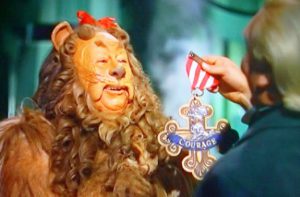
So, getting back to the original statement that got me thinking about this, Millar’s assessment was right and wrong at the same time because he demonstrated the very line of thinking that causes poor adaptations. In an effort to figure out the core of these characters, Millar (and apparently people working on most DC movies) completely misidentifies the heart of these characters. And, in doing so, they fall into the same trap that has caused so many adaptations to fail to meet expectations. If someone can’t identify the reason why properties work in one medium, they can’t effectively translate those to another medium. Because, in the end, while it’s true that Superman has the sort of powers that allow him to do anything, because he is Clark Kent…
He doesn’t.
(I write novels and dabble in screenplays. Follow me on twitter and someday I hope to tell you something I created has been adapted too.)


